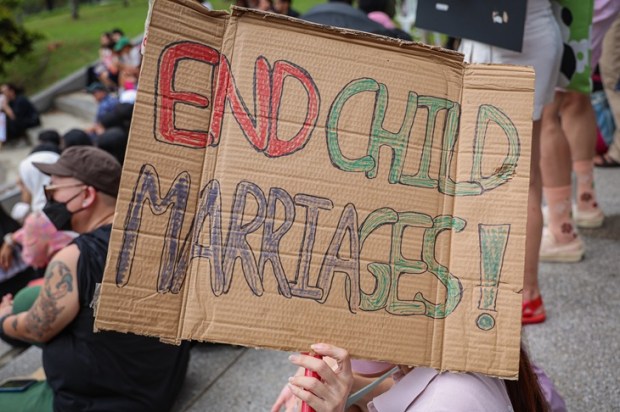Not since the days of the prophets has there been a greater clarion call for human civilisation than that espoused by the Universal Declaration of Human Rights adopted by the UN General Assembly in December 1948.
It was written as humanity was coming out of one of the greatest ethnic conflicts the world had ever seen – the second world war. But the Declaration was not just a response to it. It was the culmination of centuries of civil rights gains that had been hard fought for and forged.
Since its adoption, it has become the bedrock for civil rights movements across the world – movements against racism, sexism, casteism, and many other morally indefensible ‘isms’ that have blighted humanity.
This is why it is important we understand the proposed Indigenous-only Voice to Parliament violates this sacred Declaration.
The Declaration contains 30 Articles – I call them covenants of civility, they are universally true for all ages.
Article 1 states: All human beings are born free and equal in dignity and rights. They are endowed with reason and conscience and should act towards one another in a spirit of brotherhood.
Article 2 follows: Everyone is entitled to all the rights and freedoms set forth in this Declaration, without distinction of any kind, such as race, colour, sex, language, religion, political or other opinion, national or social origin, property, birth or other status.
The Declaration unapologetically states that we are born ‘free and equal in dignity and rights’, and that ‘race’ and ‘origin’ should not cloud, define, limit or overextend those rights for any person or group.
The ‘Voice’ sits in direct contradiction to both these Articles.
The Voice imposes a hierarchy of origin or descent on Australians, giving some more rights than others on that basis.
History shows us that this is a dangerous path down which to tread.
As a former UN humanitarian, and civilian peacekeeper, having served in Afghanistan, Burundi, Congo and Liberia, I have seen up close how differential rights – or for that matter, even the perception of differential rights – can tear societies apart.
I saw this graphically in Burundi, a country neighbouring Rwanda, which was marred by the same Hutu-Tutsi divide that resulted in the death of a million men, women and children massacred in the 1994 Rwandan genocide.
Arguably, at their heart, the ethnic conflicts of the Great Lakes of Africa had their origin in two indisputable facts.
The first lay in the competing narratives of who arrived first to the region – Hutus or Tutsis.
The second was the perception held by each group, that the other ethnic group received preferential treatment in society. The perception, much less the reality, created resentment, which was exploited by politicians and warlords alike.
These two factors, combined with historical fear one group were poised to ‘eliminate’ the other, were enough to ignite one of the worst humanitarian conflicts of the second half of the 20th Century.
It is precisely because human beings are flawed and vulnerable to the worst aspects of their nature that the UN Declaration of Human Rights is so categorical that no distinction should be placed on the basis of race, colour and origin when it comes to the rights and freedoms of people.
Sadly, the currently federal Australian government is failing to learn the lessons of the past.
While history gives us countless examples of how the mere perception of preference is enough to create social and community tensions, it wants to embed preferential treatment for one group of Australians based on their ‘race’ and ‘origin’ into the official governance structure of the country.
It is a recipe for disaster.
It gives those who ‘identify and are accepted’ as Indigenous, not one, but two votes via its 24 representatives: one vote the same as all – the second vote to potentially override, or overpower, the first.
The Indigenous-only Voice can question anything before the parliament. Anything and everything.
Prime Minister Albanese keeps reassuring Australians that the Voice will ‘just be able to say, this is our view’.
Given the way the law operates in Australia, a constitutionally enshrined Voice demands serious consideration to all its ‘views’. For anybody to suggest or imply the ‘Voice’ could simply be ignored, once established, is being disingenuous.
Either Prime Minister Albanese knows this, or doesn’t understand how the law and courts work. Either way, he’s letting both Indigenous Australians and non-Indigenous Australians down with his vagaries and wing-and-a-prayer approach.
Prime Minister Albanese’s actions are in direct contradiction to his stated wish of wanting to ‘unite’ all Australians.
Creating preferential rights for any group of Australians can only lead to division and strife. Take it from someone who has seen the most extreme forms of it.
This is why, I urge Australians to reject the Voice. And to do so in the knowledge they are being true to the modern masterpiece that has given a universal framework to civil rights movements around the world, including the 1966 Referendum that finally removed all discrimination between Indigenous and non-Indigenous Australians in our country: the UN Declaration of Human Rights.
To do anything else, would be racist.
Nick McGowan is a Member of the Parliament of Victoria. Nick has served as a civilian peacekeeper working directly for the UN Secretary General’s Special Representative in Burundi.

























